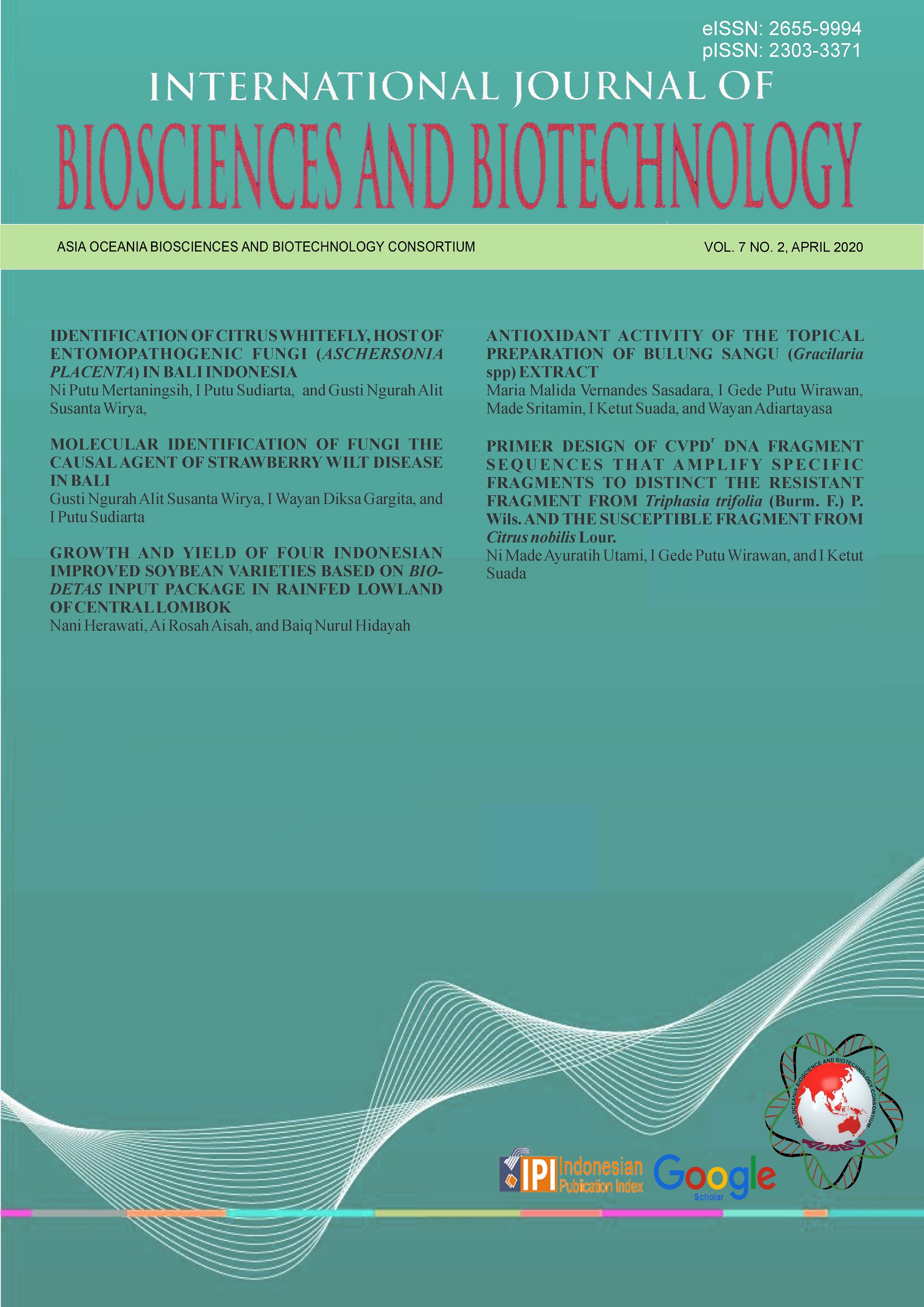GROWTH AND YIELD OF FOUR INDONESIAN IMPROVED SOYBEAN VARIETIES BASED ON BIO-DETAS INPUT PACKAGE IN RAINFED LOWLAND OF CENTRAL LOMBOK
Abstract
Soybean is one of the most important food crops in Indonesia after rice and corn, due to its protein content reaches 40%. Rainfed lowland can be used as expansion planting area in hopes of obtaining high productivity with efficient inputs. In order to increase yield, it is necessary to apply the Bio-Detas input package that priorities the use of adaptive improved varieties, organic fertilizers and biological pesticides. This research aim to investigate the response of four Indonesian improved soybean varieties based on the application of Bio-Detas input package in rainfed lowland. The experiment was conducted from March to July 2018 in Pengembur Village, Central Lombok Regency of West Nusa Tenggara Province, Indonesia. The experiment was conducted using a non-factorial randomized block design with varieties as treatments, namely Argomulyo, Burangrang, Dega-1, and Dena-1. Each treatment was repeated three times therefore there were 12 experimental plots in total. Parameters observed during the vegetative and generative phases including plant height, number of branches, number of leaves, number of nodus, number of flowers and number of pods. Data were collected from five plants for each replication. Results showed that varieties had a significant influence on the number of leaves, number of nodus and number of flowers during the vegetative phase. While during the generative phase there were a significant effect of varieties on plant height, number of leaves and number of nodus. Due to dry season occurred earlier in April, yield on Bio-Detas input package was reached 578 kg/ha compared to farmer’s existing technology was 393 kg/ha.






